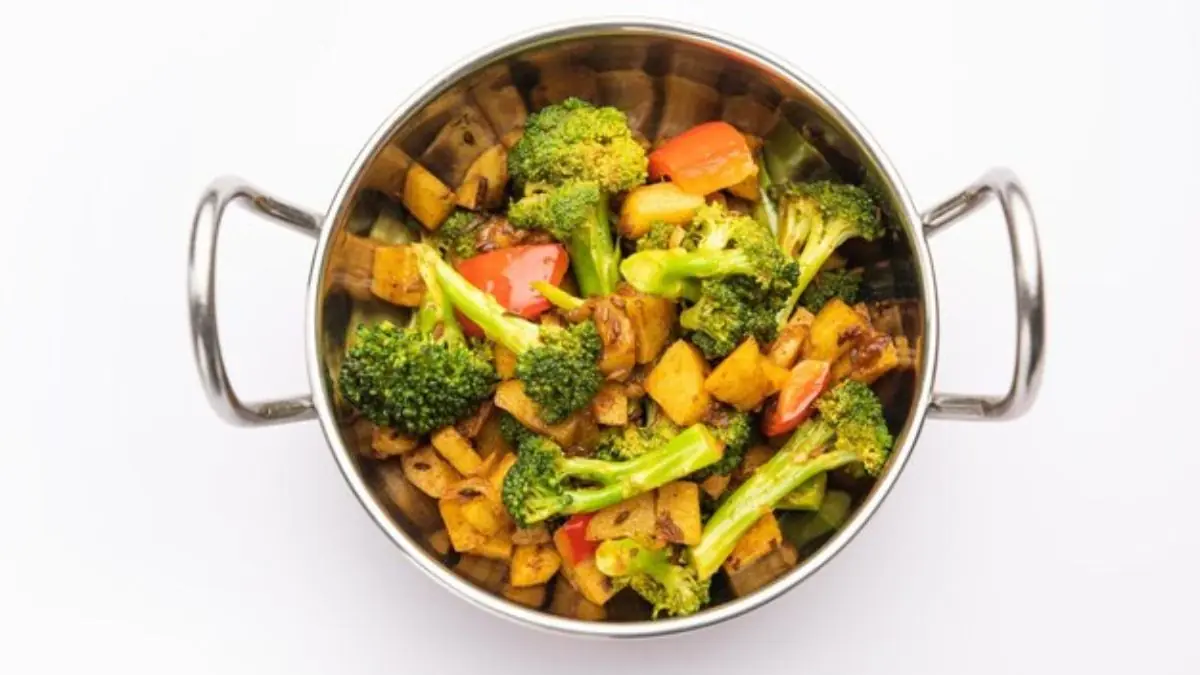According to Ayurveda, vegetarian dishes are easy to digest; typically, they get broken down within 3-4 hours. If prepared with seasonal produce, the delicacy is your gateway to balance doshas and promote overall well-being, nourishment, and healing. Not to mention that these stews are considered gut-friendly, lightweight, and wholesome.
You must be wondering why this copy is suddenly talking about Ayurveda. It is because Kerala is renowned for traditional Indian medicine practitioners, and the local cuisine comprises not only delicious but also nourishing delicacies. Among them, Kerala-style vegetable stew shines out for its creaminess, subtle sweetness from coconut milk, and a lot of fibre and goodness from the veggies.
Not many know that it is a fine example of fusion dishes. It is believed to have originated during the British Raj when kitchens were producing European stews. Natives adapted to the ideal of cooking vegetables and meat with a runny base, but they adde
According to Ayurveda, vegetarian dishes are easy to digest; typically, they get broken down within 3-4 hours. If prepared with seasonal produce, the delicacy is your gateway to balance doshas and promote overall well-being, nourishment, and healing. Not to mention that these stews are considered gut-friendly, lightweight, and wholesome.
You must be wondering why this copy is suddenly talking about Ayurveda. It is because Kerala is renowned for traditional Indian medicine practitioners, and the local cuisine comprises not only delicious but also nourishing delicacies. Among them, Kerala-style vegetable stew shines out for its creaminess, subtle sweetness from coconut milk, and a lot of fibre and goodness from the veggies.
Not many know that it is a fine example of fusion dishes. It is believed to have originated during the British Raj when kitchens were producing European stews. Natives adapted to the ideal of cooking vegetables and meat with a runny base, but they added the knowledge of food science and Ayurveda passed to them through generations. Instead of just making the stew with water and starchy flour, they added coconut milk for creaminess and spices to boost the flavours.
Both the elements not only elevate the dish, which otherwise would have turned out to be boring, but also make it nourishing and appealing to the palates of Indians as well as Europeans.
Because of spices and coconut milk, the dish has a lot of character. It is quite distinct from its Western counterparts, which were seasoned with just salt and pepper. The Christian community in Kerala made this stew with meat, but later, the Hindu community reportedly adapted the vegetarian variant. Today, this dish is an integral part of the local cuisine and a staple for breakfast.
Going by Ayurveda, coconut milk has cooling properties, and it is beneficial in the tropical climate of Kerala. It has spices and aromatics like pepper and ginger, known to boost metabolism and help with digestion. Cinnamon and cloves have anti-inflammatory properties, making them good for your overall health. Since it is lightweight, people across age groups can have it, even when they are sick.
This stew accompanies idiyappam, appams, and puttu. It can also be served with steamed rice for a comforting, warming, and nourishing meal. The vegetable stew with a coconut milk base is now a part of festive occasions, especially Easter and Christmas. Its easy preparation makes it a hit among working professionals and students.


